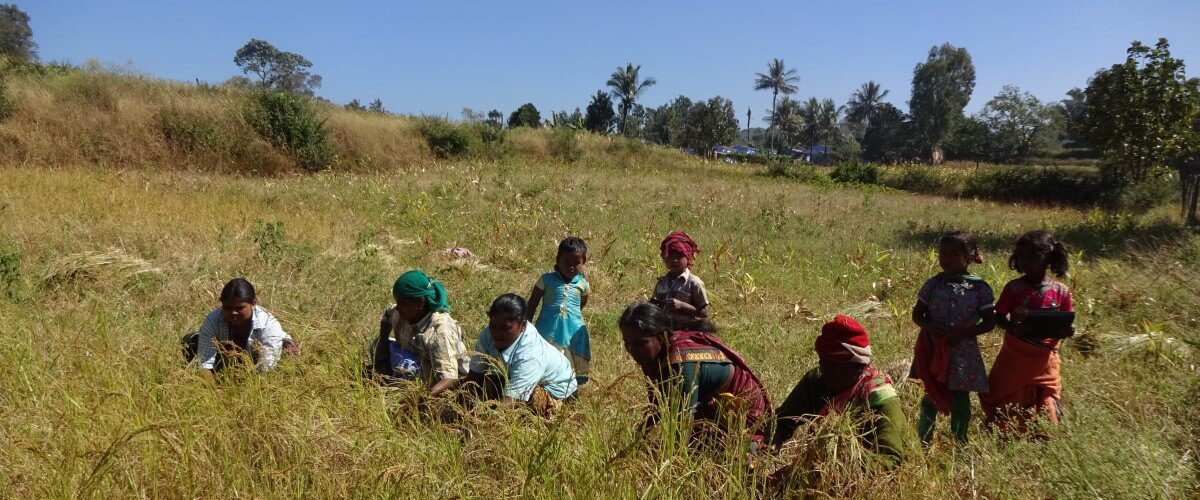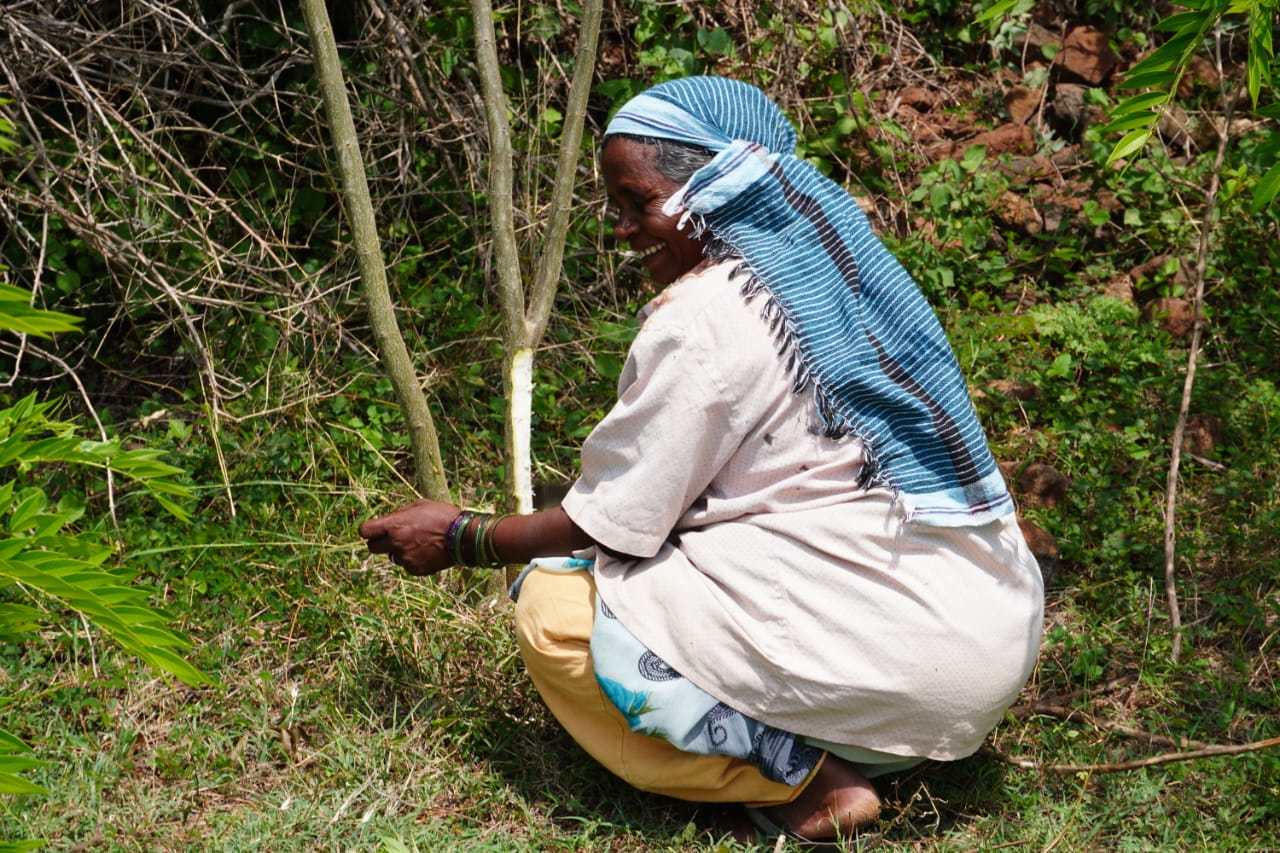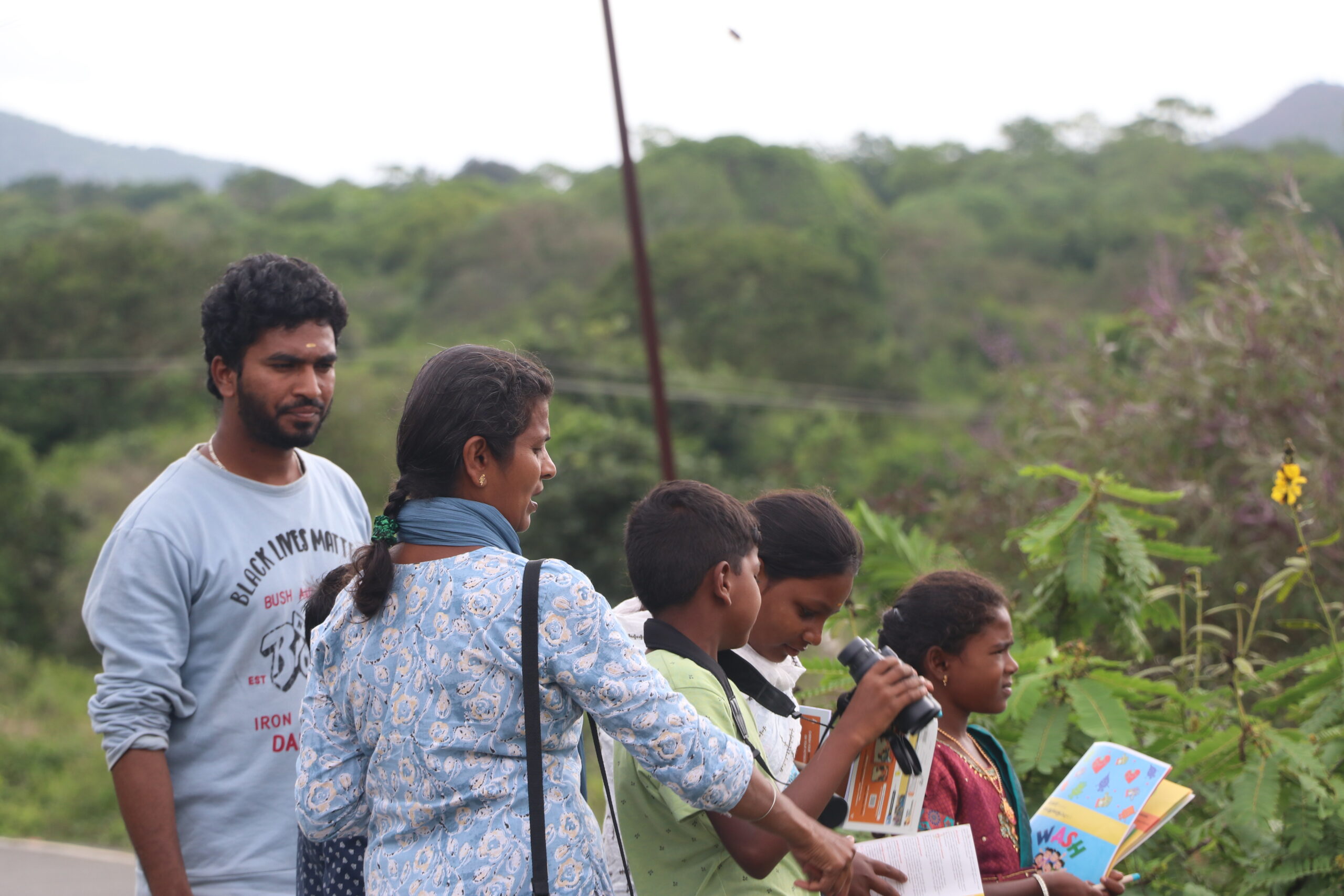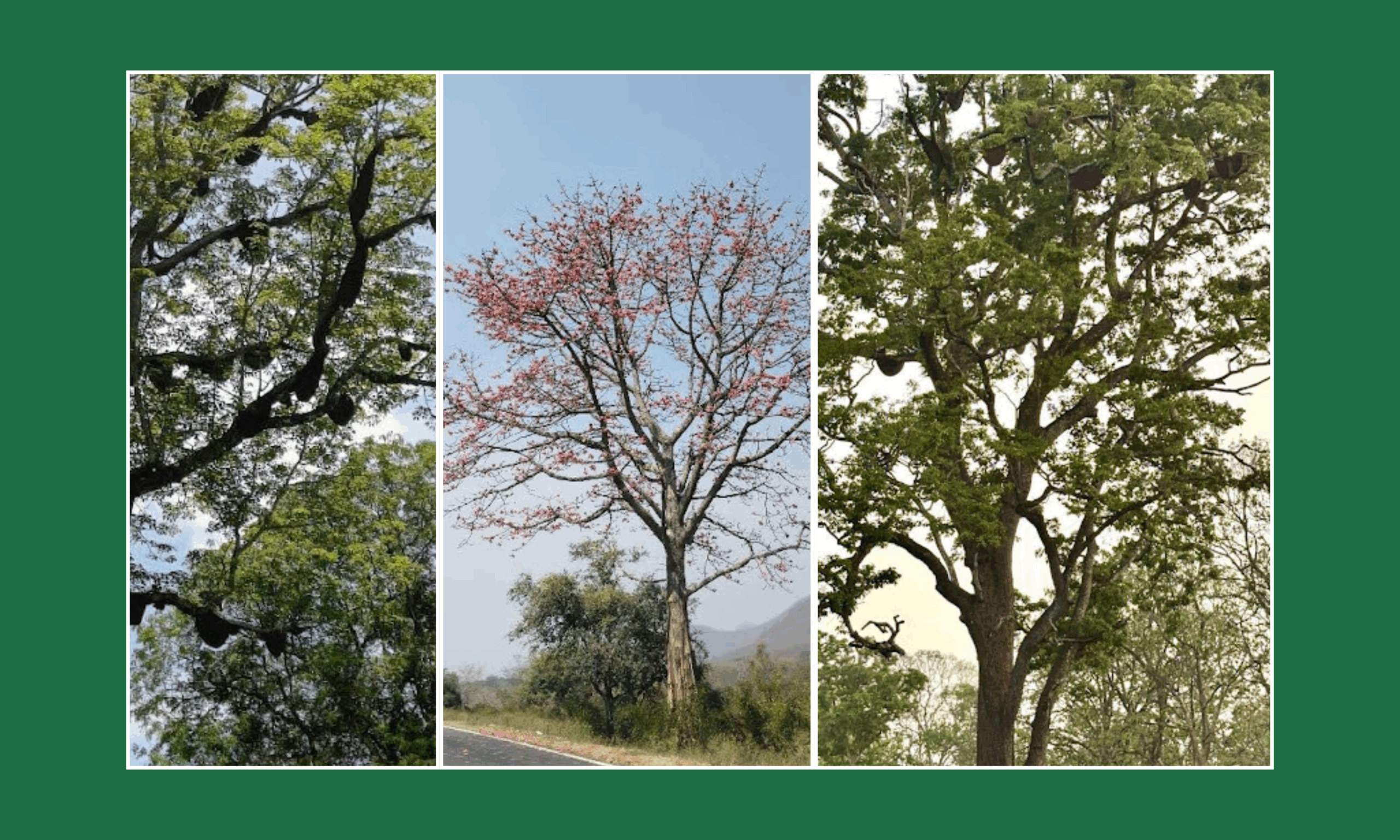November 10, 2022
Who are our Barefoot Ecologists?
Community members from across biodiverse regions in the Nilgiris and Central India have been joining Keystone as Barefoot Ecologists for over a decade and engaging in a rich exchange. They enlighten us on their vast repository of traditional ecological knowledge and are incentivised to keenly record observations of climate impacts on the local ecosystem. Our team trains them in scientific methods of data collection and analysis to ensure that their knowledge is being documented aptly.
Our Barefoot Ecologists project finds its humble beginnings in 2008, with the major activity being involving community members in forest transects. Soon, they began taking interviews to monitor and understand forests more deeply and a few years later, expanded their monitoring activities to honey hives. Today, our Barefoot Ecologists are largely studying agro-ecological landscapes and rivers. As we work to integrate studies on gender and climate into the studies led by the Ecologists, our newly launched Climate Change programme has taken over this project.
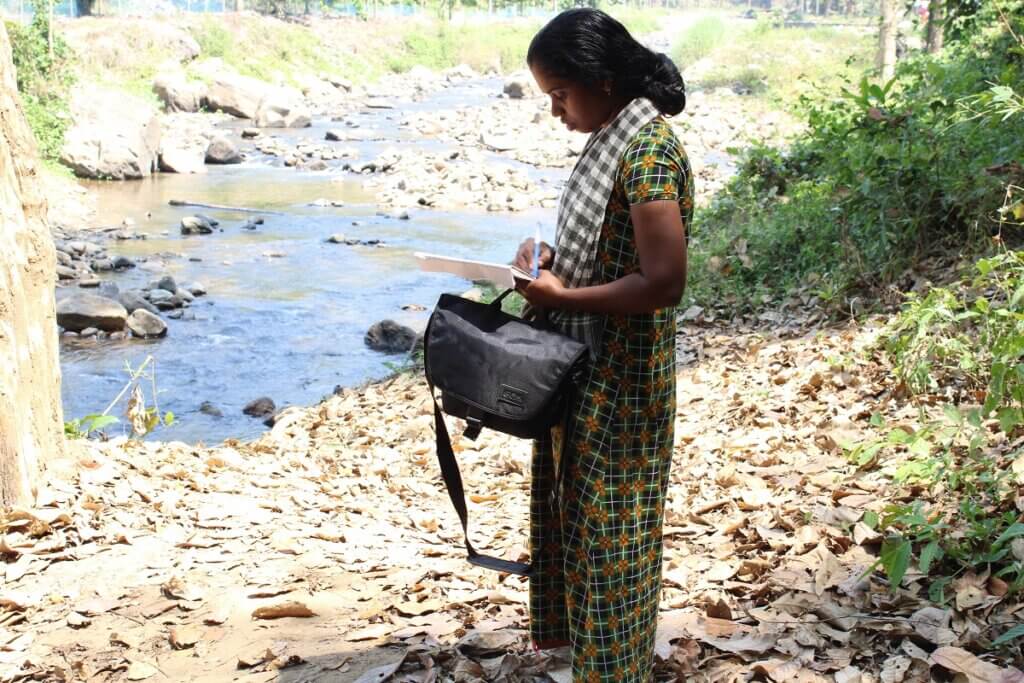
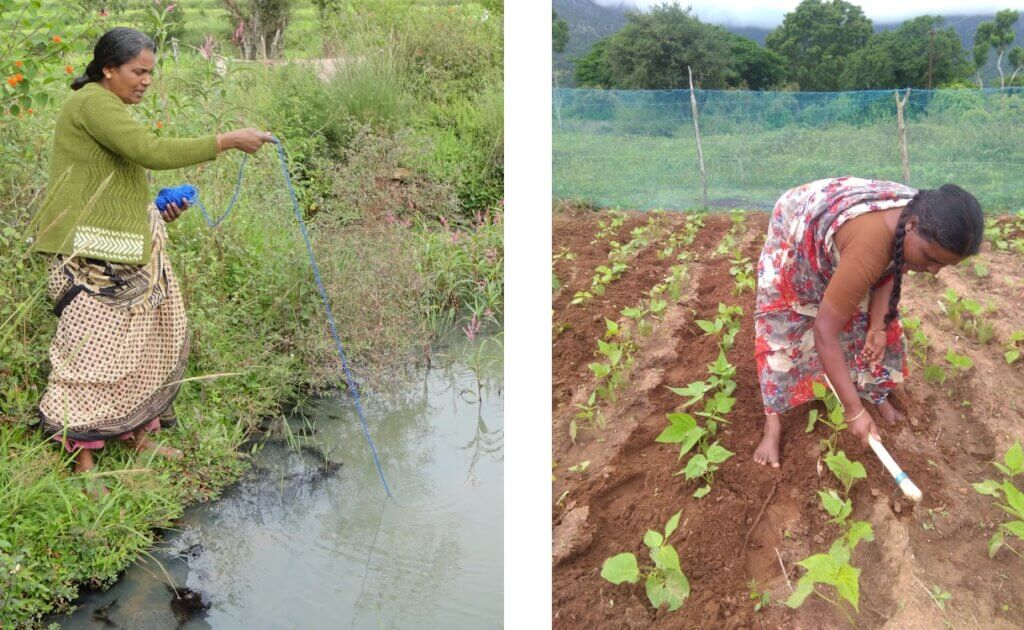
Looking Through the Gender Justice Lens
We especially encourage and highlight women who harbour their own additional knowledge of the landscape that comes with their culturally assigned roles within their homes and communities. For example, in many regions, it is women who regularly collect water and firewood for running their homes. And therefore, it is women who understand how to use and observe water resources and sustainable forest extraction. It is women who are often relied on to look after children and other family members, and therefore women who know the value of medicinal forest plants, an awareness unparalleled by the bookish knowledge of botanists.
On the flipside, women also tend to be excluded from local decision-making forums, and are not generally allowed a platform to take charge of the large-scale management of their landscapes. As Barefoot Ecologists, not only do they receive support in closely studying and managing their resources, but they are also allowed the space to ponder and voice their observations and experiences of gender-based climate impacts. In a time when it is increasingly becoming clear that men and women do not experience the climate crisis in the same way, recording such feedback is imperative to planning effective climate action that truly benefits marginalised genders and communities.
Watch an introduction to some of the many inspiring women who have joined us as Barefoot Ecologists:
Read our protocol for community-based ecological monitoring.

